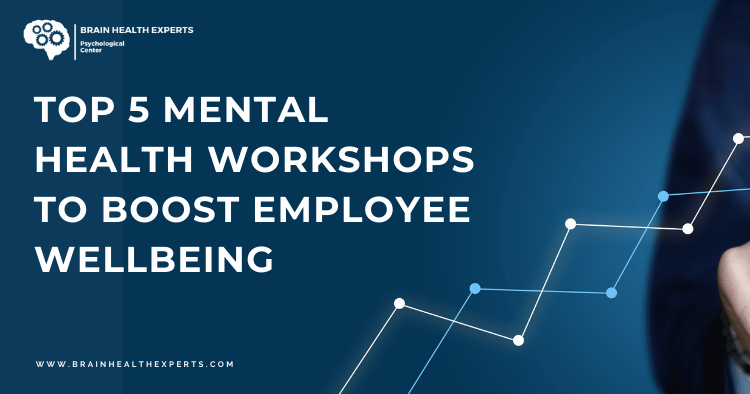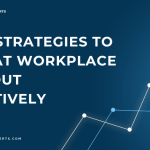Table of Contents
- Introduction
- 1. Mindfulness and Stress Management
- 2. Emotional Intelligence Training
- 3. Resilience Building
- 4. Work-Life Balance Strategies
- 5. Mental Health First Aid
- Conclusion
- FAQs
Introduction
In today’s fast-paced work environment, employee wellbeing has never been more critical. Mental health issues can lead to decreased productivity, increased absenteeism, and lower morale. To combat these challenges, many organizations are turning to mental health workshops tailored specifically for employees. These workshops not only equip employees with the skills to manage their mental health but also foster a supportive workplace culture. In this article, we’ll explore the top five mental health workshops that can significantly boost employee wellbeing.
1. Mindfulness and Stress Management
Mindfulness and stress management workshops focus on techniques that help employees become more aware of their thoughts and feelings in the present moment. These workshops often include practices such as meditation, deep breathing exercises, and guided imagery.
Benefits:
- Reduced Stress Levels: Practicing mindfulness can lower cortisol levels, leading to reduced stress.
- Improved Focus and Productivity: Mindfulness enhances concentration, which can boost overall productivity.
- Better Emotional Regulation: Employees learn to manage their reactions, leading to healthier relationships at work.
Recommended Resources:
- Mindfulness-Based Stress Reduction (MBSR) Program by UMass Medical School
- For more on mindfulness, check out 10 Mindfulness Techniques to Alleviate Depression Symptoms for effective practices.
“Mindfulness isn’t just about meditation; it’s about being present and engaged in your daily life.”
2. Emotional Intelligence Training
Emotional intelligence (EI) is the ability to recognize and manage one’s own emotions while empathizing with others. Workshops focused on EI can significantly enhance team dynamics and communication.
Benefits:
- Enhanced Communication Skills: Employees learn to express themselves clearly and listen actively.
- Better Team Collaboration: Understanding emotions fosters a more collaborative and supportive work environment.
- Conflict Resolution: Higher EI leads to better handling of conflicts, reducing workplace tension.
Recommended Resources:
- The Consortium for Research on Emotional Intelligence in Organizations – A resource hub for EI research and training methods.
- Also, learn how Emotional Intelligence Drives Your Success for further insights.
“Emotional intelligence is not about being nice; it’s about being aware.”
3. Resilience Building
Resilience workshops teach employees how to bounce back from challenges and setbacks. These sessions often include strategies for coping with stress, adapting to change, and maintaining a positive outlook.
Benefits:
- Stronger Coping Mechanisms: Employees learn how to handle adversity effectively.
- Increased Adaptability: Resilient individuals adapt more easily to changes in the workplace.
- Improved Job Satisfaction: Resilience contributes to overall job satisfaction and engagement.
Recommended Resources:
- American Psychological Association: Building Your Resilience – Offers tips and tools for enhancing resilience.
- Explore 10 Ways Positive Thinking Boosts Resilience in Tough Times for additional strategies.
“Resilience isn’t a fixed trait. It’s a skill that can be developed and strengthened over time.”
4. Work-Life Balance Strategies
Work-life balance workshops help employees manage their time and energy across professional and personal domains. These sessions often include tips on setting boundaries, prioritizing tasks, and self-care practices.
Benefits:
- Reduced Burnout: Employees learn to prioritize their wellbeing, reducing the risk of burnout.
- Increased Productivity: Better time management leads to higher productivity levels.
- Enhanced Job Satisfaction: A healthy work-life balance contributes to overall happiness and fulfillment.
Recommended Resources:
- MindTools: Work-Life Balance – Provides resources and articles on achieving work-life balance.
- For effective strategies, refer to 10 Tips for Achieving Work-Life Balance Boosting Mental Health.
“Work-life balance is not a destination, but a continuous process.”
5. Mental Health First Aid
Mental Health First Aid (MHFA) is a training program designed to teach employees how to help someone experiencing a mental health crisis. This workshop empowers employees to provide support and connect individuals to appropriate resources.
Benefits:
- Increased Awareness: Employees become more knowledgeable about mental health issues.
- Supportive Environment: A workplace trained in MHFA fosters a culture of support and understanding.
- Crisis Prevention: Early intervention can prevent crises from escalating.
Recommended Resources:
- Mental Health First Aid USA – Offers training programs and materials for individuals and organizations.
- To understand the importance of mental health in the workplace, see Top 10 Essential Workplace Mental Health Resources 2024.
“Just like CPR, Mental Health First Aid is a skill that everyone can and should learn.”
Conclusion
Investing in mental health workshops is not just a trend; it’s a necessity for fostering a healthy workplace. The benefits of these workshops extend beyond individual employees to create a more cohesive, productive, and supportive work environment. By prioritizing mental health, organizations can enhance employee wellbeing and contribute to long-term success.
FAQs
Q1: How can I implement these workshops in my organization?
A1: Start by assessing the specific needs of your employees and then partner with reputable organizations that offer these workshops. Consider scheduling regular sessions and promoting them as part of your employee wellness program.
Q2: Are these workshops suitable for remote teams?
A2: Absolutely! Many of these workshops can be conducted online via video conferencing tools, making them accessible for remote employees.
Q3: What is the expected duration of these workshops?
A3: Workshops can vary in length, typically ranging from half a day to several days, depending on the depth of the training.
Q4: Can these workshops be tailored to specific industries?
A4: Yes! Many providers offer customized workshops that address the unique challenges faced in specific industries.
“By focusing on these key areas of mental health, organizations can take significant steps toward creating a more supportive and productive work environment.”
Prioritize mental health today for a healthier tomorrow!




